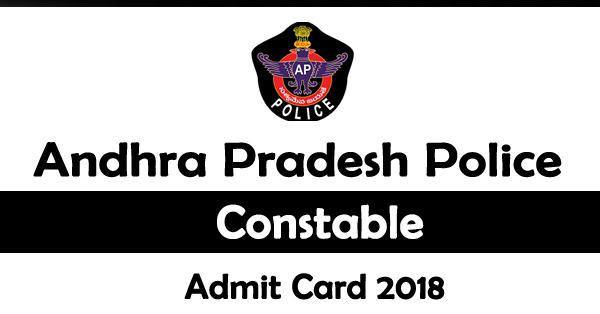Table of Contents

Q) Which of the following terms are related to WTO?
- Marrakesh agreement 1994
- Uruguay round of talks
- GATT
- TRIPS
WTO and COVID Vaccine
- Representatives from all 164 member states of the World Trade Organization met last week in Geneva to discuss a proposal from India and South Africa to waive broad sections of the WTO’s intellectual property rules and to try to forge an agreement on how patents developed in the race against Covid-19 should be recognized.
- The meeting ended without consensus, leaving legal protections for vaccines intact.
- There are four types of intellectual property rights (IPRs): patents, trademarks, copyrights, and trade secrets.
- A patent gives a drug maker exclusive rights to manufacture a vaccine/drug it developed, also providing it the power to charge a price that covers the costs of research and development.
- The waiver proposal does not suggest a waiver from all TRIPS obligations, but only from these specific sections that are essential for handling the COVID-19 crisis.
From the official proposal at WTO

- India’s proposal would require that the waiver remain in place until there’s been widespread vaccination and the majority of the world’s population has developed immunity.
- South Africa and India have argued that unless the vaccines and drugs are not made accessible across the globe, it will be difficult to eliminate COVID-19.
- Travelling people will continue to spread the disease.
- Multiple companies producing the drug will also help in large scale production.
- It will ensure that not only the wealthiest countries will be able to access and afford the vaccines, medicines, and other new technologies needed to control the pandemic.
- Without special measures, rich countries will benefit from new technologies as they come onto the market, while poor nations continue to be devastated by the pandemic.
- The proposal states that IP rights such as patents are obstructing affordable COVID-19 medical products.
- A temporary ban would allow multiple actors to start production sooner, instead of having manufacturing concentrated in the hands of a small number of patent holders.
- Additionally, India has also pointed out that IP rights have come in the way of scaling up production of test kit reagents, ventilator valves, N95 respirators, therapeutics, fluorescent proteins and other technologies used in development of vaccines etc.
- India is the world’s largest manufacturer of generic drugs, and South Africa is another big producer.
- Indian pharmaceutical companies export cheap generic drugs to WHO, UNICEF, Doctors Without Borders (MSF), etc.
- This helps in saving lives in poor African nations, where people/governments cannot afford expensive patented drugs.
- India also clarified, that the time period of ‘x’ years does not signify that we are seeking a waiver for an indefinite duration.
- The actual waiver duration will be negotiated and be limited to a period that this Council finds necessary to effectively handle the COVID crisis.
- India wants the waiver to be reviewed annually by the General Council.
Developed vs Developing
- WTO decisions are normally reached through consensus.
- Most low-income and middle-income countries (LMICs) support the proposal.
- However, High Income Countries (HICs) including the UK, the USA, Canada, Norway, and the EU have rejected it
- They say that the IP system is required to incentivize new inventions of vaccines, diagnostics, and treatments, which might dry up in its absence.
- The High Income Countries dismiss the claim that IP is a barrier to access.
- They argue that equitable access can be achieved through voluntary licensing, technology transfer arrangements, and the donor-funded COVAX Advance Market Commitment for vaccines.
- COVAX Facility – a global initiative working with vaccine manufacturers, to provide countries access to vaccines, once they are licensed and approved.
- Participating countries pool in money for research, and the manufacturers’ will hold patent rights.
- The COVAX Alliance has struck a deal with AstraZeneca to buy and distribute vaccines.
- AstraZeneca’s vaccine costs $4 to $5 a dose and is the big hope for the developing world right now.
- In November, 2020, Covax said it had raised $2 billion but that may not be enough as it needs another $5 billion next year to procure 2 billion doses.
- This week, the EU and European Investment Bank announced 500 million euros ($608 million) in financing, to help vaccinate 1 billion people as part of that effort.
The reply from developing nations:
- South Africa has responded to the objections, pointing to examples of how IP has created barriers to access.
- Manufacturers of monoclonal antibody therapeutics that are under patent protection, such as Regeneron and Eli Lily, have locked up most of their capacity in bilateral deals.
- For vaccines, South Africa cites the legal battle in India between Médecins Sans Frontières (MSF) and Pfizer over its pneumococcal vaccine, where a patent has blocked development of alternative versions of the vaccine.
- In South Korea, Pfizer sued SK Bioscience, which had developed a pneumococcal conjugate vaccine (PCV), forcing the Korean developer to close production of PCV-13.
- India–South Africa proposal would also make it easier for non-patent holders to produce necessary medical equipment like ventilators, masks, and protective gear.
- China, which has five COVID-19 vaccine candidates in late-stage trials, has voiced its support for developing countries.
- The World Health Organization says it supports tackling barriers to access to COVID-19 medicines, as does Nigeria’s Ngozi Okonjo-Iweala, selected by a panel to be the WTO’s next director-general.
The Result:
- The WTO meeting ended without consensus – leaving poorer countries who sponsored the proposal frustrated, and legal protections for vaccines intact.
- While the first vaccines have been distributed in recent days in the U.K., 9 out of 10 people in poor countries will miss out on a vaccine in 2021, according to Oxfam.
- Pfizer and its partner BioNTech have said their vaccine will cost $19.50 a dose in the U.S.
- That might not be affordable for many poorer countries, even if discounted, especially given the cost of the vaccine’s deep-freeze storage requirements.
Position of Pharma Industry:
- The International Federation of Pharmaceutical Manufacturers and Associations says that suspending patents will backfire.
- They have argued that waiving patents will risk harming the whole medical infrastructure that allowed Covid vaccines to be developed in record time.
- They have given the example of Pfizer’s mRNA vaccine.
- According to them, scientists eager to explore future uses of mRNA will struggle to find investment if intellectual property protections are snatched away.
- Drugmakers like AstraZeneca have pledged not to profit from their vaccine for the length of the pandemic.
- Moderna has said it won’t enforce its patents during the pandemic.
- This has earned them praise even from critics of the big pharma industry.
- In the past, Swiss drug manufacturer Novartis had shared its patent rights with developing countries for its malaria drug developed from Qinghao tree (Chinese traditional medicine).
The ethical question regarding financing of vaccine research
- At the WTO meeting, India pointed out that – governments across the globe are supporting development of new health technologies, in particular vaccines, by pouring billions of dollars of public funds into research and development.
- Therefore, the argument that monopoly rights are needed to allow the inventors to recoup their investment – does not seem to apply in case of development of health products and technologies required for handling the ongoing Covid19 crisis.
The Solution?
- Individual companies can be pressured to allow non-exclusive licenses and technology transfer of their products.
- For example, AstraZeneca and Novavax have established agreements with the Serum Institute of India for vaccines.
- This partnership model would be much faster, instead of going for an ideal solution that might be unreachable.
- However, such partnership of AstraZeneca with Indian and Brazilian firms, lacks transparency about costs.
Q) Which of the following terms are related to WTO?
- Marrakesh agreement 1994
- Uruguay round of talks
- GATT
- TRIPS
TRIPs: A Brief History –
- Trade Related Intellectual Property Rights were negotiated in Geneva in 1993, and signed in Marrakech, Morocco, in 1994, as a part of the Uruguay Round agreements of the WTO.
- World Intellectual Property Organization (WIPO) of the UN, already existed since 1970, to deal with intellectual property rights.
- But it had no enforcement mechanism – US or EU could not do anything against a country that refused to make intellectual property laws.
- Under TRIPs, they can impose sanctions legally to enforce IPRs.
Latest Burning Issues | Free PDF

























 WhatsApp
WhatsApp